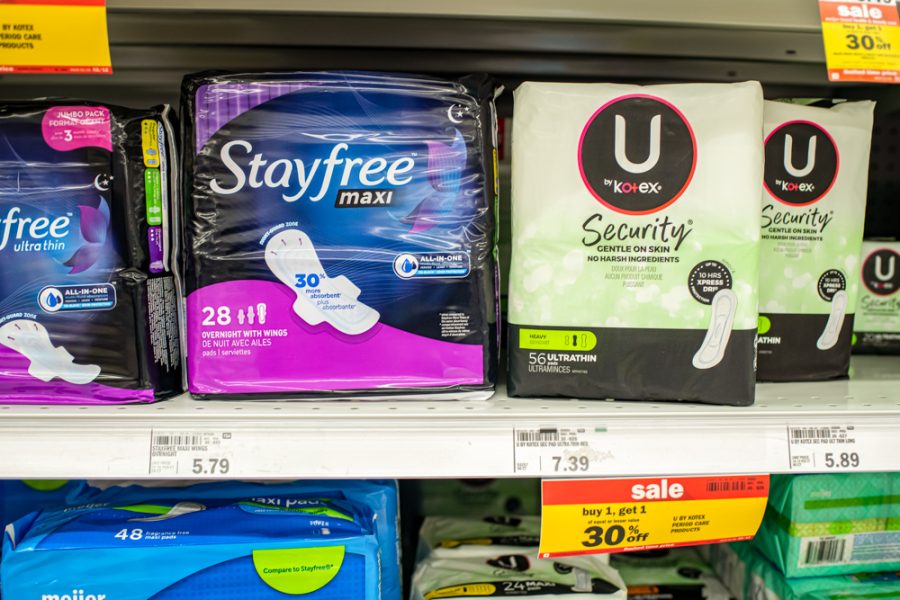GV offers free menstrual products through Basic Needs Task Force
Feb 14, 2022
Almost two years ago, following a successful trial run, Grand Valley State University’s Student Senate unanimously passed a resolution that would provide free menstrual products to students.
Student Senate collaborated with the Center for Women and Gender Equity and provided menstrual hygiene products in five bathrooms to begin their trial.
Former Student Senator, Alex Hicks, said they received overwhelmingly positive feedback.
“We saw huge success,” Hicks said. “Not only did we see these products being used regularly, showing students needed them, but we also saw an outpour of gratitude from the student body.”
Riding this momentum, the resolution called for GVSU to create a task force charged with researching the impact of menstrual hygiene product accessibility on students.
Through the Basic Needs Task Force, the university has started providing these products on campus and removed the payment option on most of the dispensers.
Center for Women and Gender Equity’s former associate director, Sharalle Arnold, worked with Hicks on providing these products across campus.
“During a conversation with Alex, who wanted to get more products in different places, we began to move that information to the basic needs agenda and the people serving on the committee, along with facilities, agreed it was a basic need for students,” Arnold said.
When Hicks proposed the resolution in Feb. 2020. It included strong evidence that menstrual hygiene products are a basic need, especially for students.
“This is a huge thing that could make such a big difference in the lives of their students,” Hicks said. “I discovered that over 90% of (menstruating) students believe that menstruation has been a barrier to their education. Not having access to menstruation products whether you can’t afford one or just don’t have one on you that day can be really difficult if you’re in class.”
In addition to this, Hicks and Arnold both mentioned that GVSU is now a cashless campus, so it would be unlikely that people are carrying a quarter for a tampon.
Although there are free products offered around campus, Hicks hopes that it can become more widespread in the future.
With Governor Whitmer’s recent repeal of the tampon tax, Arnold agrees that people shouldn’t be taxed on something natural.
“Menstrual products are definitely a basic need, folks that are menstruating don’t have a choice,” Arnold said. “You don’t turn it off. It’s a natural occurrence, so to be taxed because of that, can be difficult for some students to afford.”
GVSU’s Basic Needs Task Force provides free products in most bathrooms on campus.
Facilities and the task force agreed to put free signs on the dispenser and disable the payment option.
“At the end of the day, GV isn’t really profiting off of selling menstruation products, which is something they could easily bite the cost off,” Hicks said. “If you give them for free, it will show us that GVSU cares for us as people and not-tuition payers.”






















